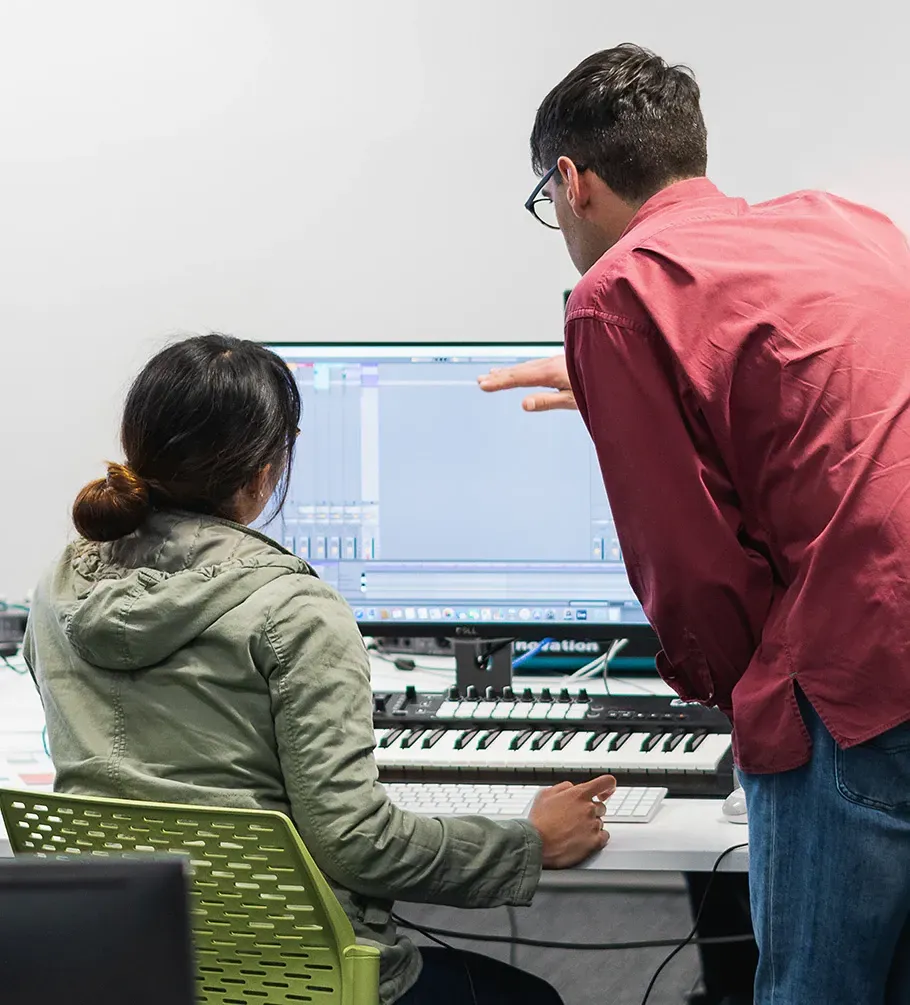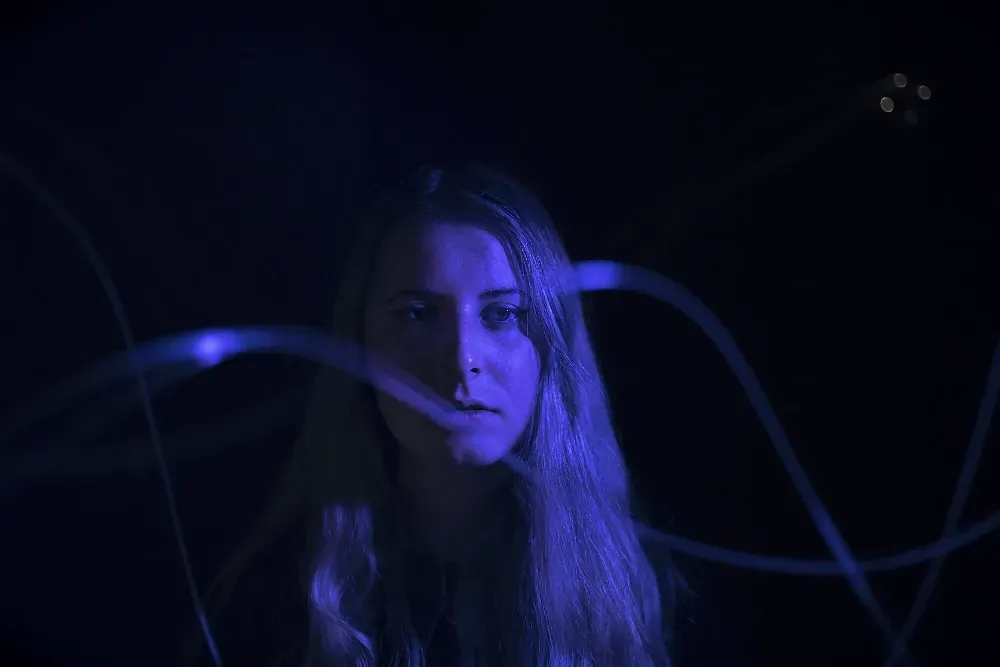Meet three creatives turning ideas into reality
Written by

Created in partnership with Massey University.
Launched in 2018, Massey’s Masters of Creative Enterprise (MCE) degree is designed to help students build sustainable careers in the creative sector. Over the course of the 18-month programme, students work with established industry leaders to turn their idea from a concept into a commercial reality. In addition, the course equips students with the research and entrepreneurial skills they need to survive and thrive in the real world.
With applications now open for the 2020 programme and six $2000 research awards up for grabs, we asked three recent MCE alumni to shed some light on their experiences.
Callum Campbell, founder and CEO of Discholars
What made you decide to take the MCE?
I felt I needed to understand my work and my field at a deeper level. At the same time, I wanted to stay connected to the industry and real world developments. The MCE was ideal for both aspects, and helped accelerate my project compared to if I had completed it solo.
Briefly describe your MCE Major Project
Discholars specialises in music technology education. We offer music lessons using the Digital Audio Workstation (DAW) as the primary instrument.
A DAW is a music software application which is commonly used in bedrooms and recording studios around the world. In particular, our lessons focus on creating space for creativity, discovery, learning, and for understanding emotion in music.
Tell us about a key lesson you learned during the course
My work had multiple moving parts so [the MCE] really honed my project and time management skills. For me, maintaining a healthy mental hygiene was crucial. A key part of my success was maintaining consistent energy and effort, and balancing that with consistent breaks and recovery time. This enabled me to achieve a lot more and also enjoy the process a lot more.
What was the most challenging aspect of the programme?
The most challenging aspect for me was testing my idea in the real world. The university is a safe space for experimentation and creativity so taking it into the real world came with challenges, but it was also where I learnt the most. So naturally it was the most rewarding aspect also.
What was the highlight?
I had two: the first was testing the lessons I had created and watching my students’ development as the lessons progressed, which was hugely rewarding. Second, I was privileged to present my ideas at the Music Educators New Zealand Aotearoa conference in Christchurch. I learned a lot from speaking to teachers there and hearing about their experiences gave me ideas for my own practice moving forward.
Having completed the course, what’s the next step for your career?
My next step is to introduce Discholars to the world and establish it within the market. DAW tuition is in its infancy in New Zealand, so it’s exciting to think of the opportunities it will open up for music learners in the future!
What advice do you have for anyone thinking of taking the MCE in 2020?
Through taking the MCE, you’ll learn a lot about yourself and your creative work, and how it fits within its market. If you’re open to this learning, I think you’ll find the MCE rewarding.
Kaysha Bowler, light and sound artist
Kaysha Bowler, whose MCE Project ether is a bespoke immersive experience design service, offering entrancing audio-visual installations for events, concerts and live performances.
What made you decide to take the MCE?
I decided to take the MCE as I had just started to scratch the surface of my work, and felt the MCE was a programme that I could explore it within.
Briefly describe your MCE project
My project focused on giving life to physical light sources through the design and implementation of custom-built light systems. These systems manifested as kinetic light systems for art installations and live music performances.
Tell us about a key lesson you learned during the course
A key lesson learned during the year was to trust both the process and myself, because if you don't, then no one else really will.
What was the most challenging aspect of the programme?
The enterprise elements were the most challenging to wrap my head around. I consider myself to be more creatively-inclined, so it was definitely a big adjustment having to work on a project and wear some different and unfamiliar hats.
What was the highlight?
The highlight was definitely installing my work for Massey’s annual Exposure Exhibition. This was quite special as countless hours were spent in the lab developing and building the work throughout the year, that the act of sharing something I’d poured so much of myself into felt extremely surreal.
Having completed the course, what’s the next step for your career?
Some next steps are to further develop the works produced within my MCE, in particular a collaboration with Estère on her live show Into the Belly of Capricorn, for New Zealand Festival of the Arts and Auckland Arts Festival. Alongside this, I will continue making new solo and collaborative works.
What advice do you have for anyone thinking of taking the MCE course in 2020?
It’s definitely a process, so trust yourself and make it into whatever you wish it to be!
Jonny McGregor, audio programmer and sound engineer
Nodal Plugin Suite is an example of Jonny McGregor's software development investigation into how alternate user interfaces influence the use of audio plugins in music production.
What made you decide to take the MCE?
I wanted to deepen my understanding of my field and further develop skills necessary for the commercialisation of my work.
Briefly describe your MCE Major Project
My major project was the design and development of two audio plugins for audio production. The focus of my project was to develop alternative user interfaces for interaction with production software.
Tell us about a key lesson you learned during the course
One of the key lessons I learned during the year was the importance of factoring rest and breaks into my work schedule. Time management has been crucial for completing this degree and taking time to separate myself from my uni work was an incredibly important part of this process.
What was the most challenging aspect of the programme?
The most challenging aspect of the program was creating a space where I could separate myself from my work. The workload was much higher than any previous academic programme I had completed. However, I was lucky to have an excellent support network of friends and advisers to aid me in this process and teach me the value of distance.
What was the highlight?
My highlight for me was when I got my exegesis printed and bound. When I finally had it completed and in my hands, I felt that all of my work had finally paid off.
Having now completed the MCE, what’s the next step for your career?
The next step for my career is to further expand my network and collaborate with great people to develop new audio technology.
What advice do you have for anyone thinking of taking the MCE course in 2020?
Remain open-minded with regards to the direction your project can go in, and be comfortable with the inevitability of change. If I hadn't allowed my project to grow, shift, and develop, it would have inhibited my own ability to grow alongside it.
Applications for Massey’s Master of Creative Enterprise 2020 programme are now open. Thinking about applying? Visit Creative.massey.ac.nz/mce for details, and check out these top tips for getting an application together.

